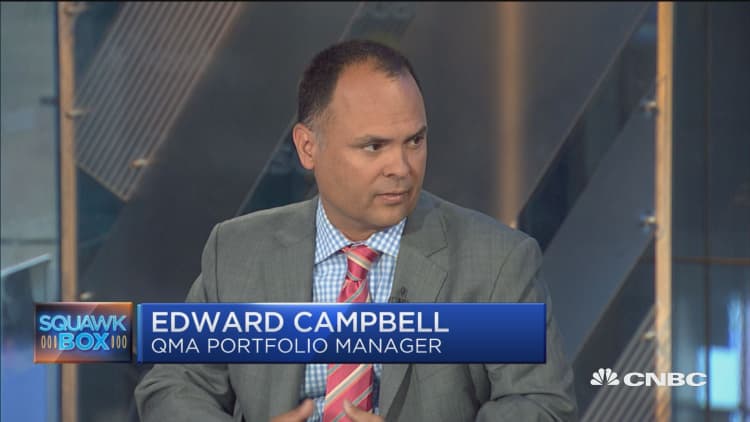
The uncertainty from tensions over North Korea could provide an elusive pullback in the stock market by 5 percent or more, analyst Edward Campbell told CNBC on Friday.
The three major U.S. stock futures indexes turned higher Friday after a Labor Department report showed a lower-than-expected rise in consumer prices. Earlier Friday, the markets pointed to a fourth-straight day of losses after President Donald Trump escalated his rhetoric against North Korea.
"This could be the catalyst that sparks the meaningful pullback that we've been looking for," said Campbell, portfolio manager at QMA. "I think it's 5 percent, possibly a little bit more."
"We've been looking for a pullback this summer that has so far eluded us," he added in an interview on "Squawk Box."
Before this week, stocks were notching record highs. The Dow posted record closing highs all of last week as a stronger-than-expected earnings season carried on.
In a tweet Friday, Trump said the U.S. military is "locked and loaded" to respond to a Pyongyang provocation. A day before, the president said that his warning of bringing "fire and fury" to North Korea if it continues its threats may not have been "tough enough."
The CBOE volatility index (VIX), widely considered the best gauge of fear in the market, has soared this week amid the heightened tensions over North Korea's nuclear weapons and missile programs.
Also on "Squawk Box," JPMorgan Funds global market strategist Gabriela Santos said she thinks the war of words between Trump and North Korea will pass.
"These do seem just like escalating verbal tensions and sanctions as well rather than an actual step into a military confrontation. That would be an entirely different ball game," Santos said.
Investors are also used to geopolitical stress as a normal market backdrop, said Santos, citing terrorist attacks around the world.


